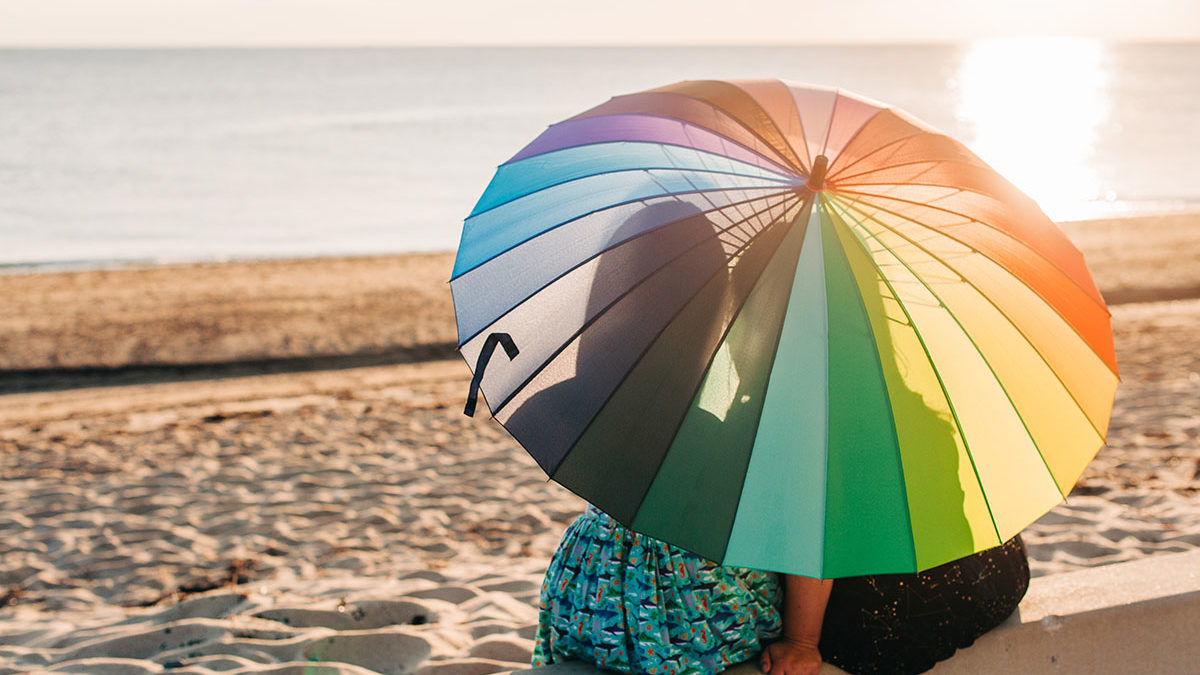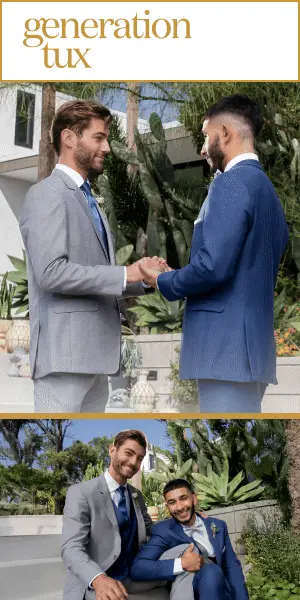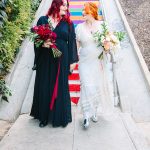My partner, Macey, and I were in the social cats’ room at the animal shelter. We’d just met—and fallen in love with—a pair of bonded two-year-old cats we wanted to adopt, and Macey asked the shelter manager what the next steps in the process were. She began walking us through what we’d need to bring with us when we came back to fill out the application and then she paused.
“What will you do about the cats when you no longer live together?” she asked.
Like many people who casually encounter us, she jumped to the conclusion that we’re roommates. I started to say something about how we’ll always live together when Macey, who’s more collected than I am in these situations, gently corrected her. We were lucky; the manager apologized for her mistake and continued to tell us how we could adopt the cats. When we came back a few days later, the cats were ours, and we took them home with us.
It wasn’t the first time I’d worried about the continual coming out process that tends to happen to LGBTQ+ couples. When we first starting searching for apartments, I never specifically told any rental agents or potential landlords that we’re in a relationship (I think renting a one-bedroom for two is probably a dead giveaway, but you never know with Millennials in this housing market).

At the end of the summer, I asked Macey to marry me. We were in Provincetown, Massachusetts, which has been known as a hub for the queer community for decades. When I walked into the hair salon while she was getting her hair done for our photos, one of the staff asked if I was the “lucky lady.” It was one of the few times that my relationship was automatically recognized, met with respect, and congratulated. Over the course of the weekend, I took opportunities to “come out” to people I normally never would—I told a woman at the inn front desk that we’d just gotten engaged, and I talked about our relationship with an art store owner while buying a photo print.
I’ve always kept quiet about my relationship with Macey when it comes to strangers, and I recognize the privilege I have to even be able to make the decision to hire a photographer to capture the proposal or to rent a room at an inn with her. My choice has partially been about safety and fear of discrimination, but also because it’s sometimes easier—when we don’t out ourselves in these small, daily interactions, we never have to explain or deal with the awkwardness if someone is opposed to LGBTQ+ relationships.

In my search for a proposal photographer a couple of months ago, I was faced with the reality that I’d automatically be outing myself to every prospective photographer. I was really fortunate that Equally Wed’s vendor database helped me pull a list of LGBTQ-friendly photographers, and when I spoke with Melissa on the phone, we clicked immediately. Her enthusiasm for my proposal and the fact that she wanted to make it a memorable, fun day eased any nervousness I had about planning. From the start, I felt like my proposal was being treated the same way a non-queer proposal would be.
Macey and I are just beginning the wedding planning process, and I’m going to get more comfortable telling people I’ve just met that we’re engaged. After all, I don’t want anyone involved in my wedding (venue, florist, DJ, videographer, caterer) who isn’t proud to support the LGBTQ+ community and be part of a queer wedding.
Fin Leary
1 Comment
Leave a Reply
You must be logged in to post a comment.
MOST VIEWED STORIES
- A Guide to Writing Nontraditional, Inclusive Wedding Vows
- A Stylish, Heartfelt Celebration in Munich: Bastian & Marc’s Modern Fall Wedding
- How to choose your wedding suit or tuxedo
- The Rise of Weddings With Long-Lasting Investments: Benefits Beyond The Big Day
- How to have a green wedding that Mother Earth would attend


























I love this, Alaina! What a beautiful testimony to your upcoming marriage and to the queer community at large. And that pic of you and Macey in the bookstore—be still my heart. Congratulations again on your engagement!